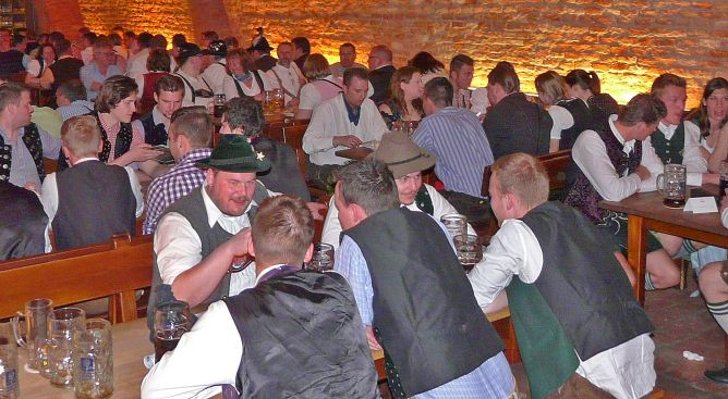Starkbier, also known as bock, is a strong lager of German origin. It is historically associated with special occasions, including religious festivals such as Christmas, Lent or Easter. Substyles of bock include traditional bock, mailbock (pale bock), doppelbock (double bock), eisbock (ice bock), and weizenbock (wheat bock).
Munich’s Strong Beer Festival is commonly associated with the famous Paulaner brewery. Established in 1634 by the friars of the Minim Order, it was named after the founder of the Order, Saint Francis of Paola. In 1651, they started brewing Salvator (“Savior”), a strong beer designed to keep up the strength and spirits of the monks during Lent, when solid food was not permitted. The malty, nourishing beer was even referred to as Flüssiges Brot, which means “liquid bread”.
Originally, the monks brewed Starkbier for their own consumption but later they were permitted to sell it on holidays, and their bock beer gained local fame. When the Neudeck cloister was abolished in 1799, brewer Franz Xavier Zacherl purchased the brewery and continued brewing Salvator. Today, the beer is trademarked by Paulaner.
The Strong Beer Festival is believed to have originated in the 1750s. The celebration is held annually after the Carnival and during the Lenten season. Starkbierzeit is often referred to as “Oktoberfest’s younger brother” and “insider’s Oktoberfest”. While not as large as the world’s most famous beer festival, it attracts plenty of beer lovers who prefer strong beer to other varieties.
During Starkbierzeit, you can taste strong beers provided by Munich’s four main breweries: Paulaner, Löwenbräu, Augustiner, and Unions. Local restaurants and food joints serve traditional food such as pretzels and bratwurst (because consuming strong beer on an empty stomach is a very bad idea). The celebration also features beer carrying, stone-lifting and wood chopping contests, and other entertainment.





